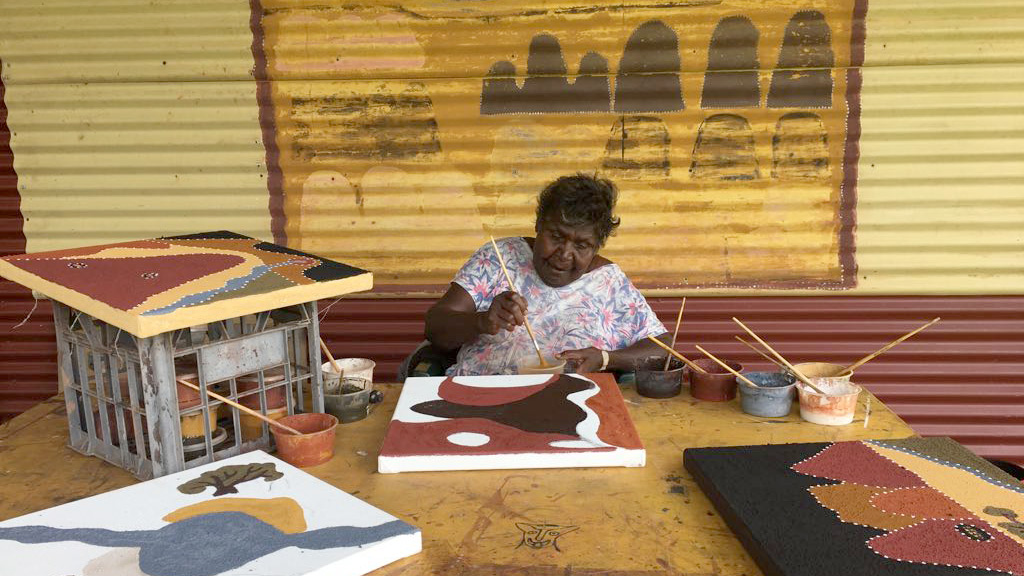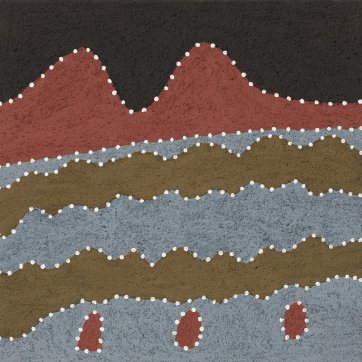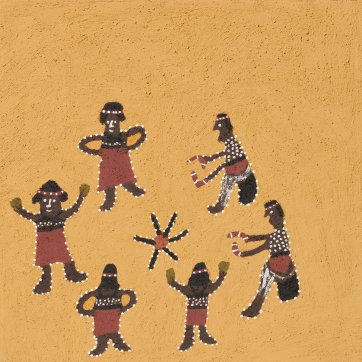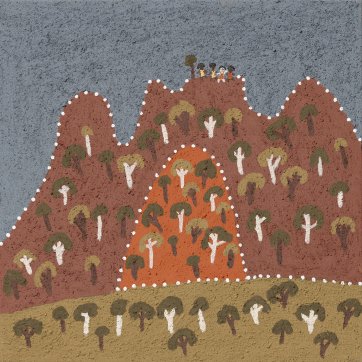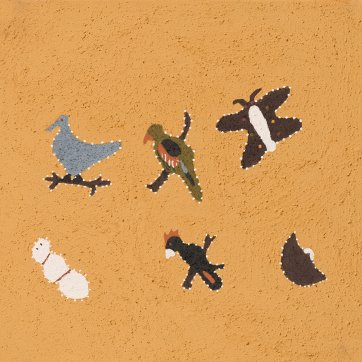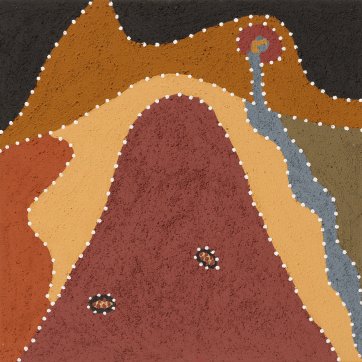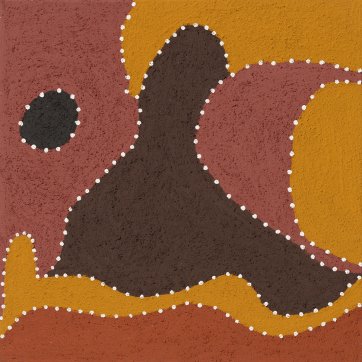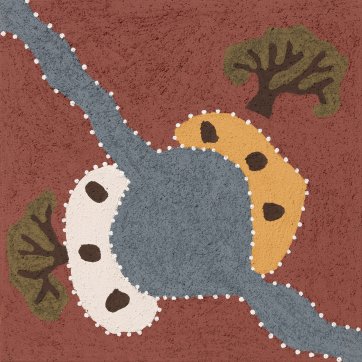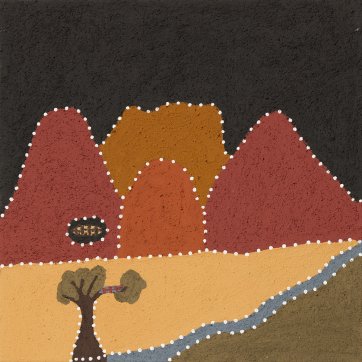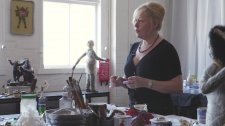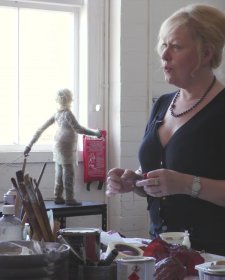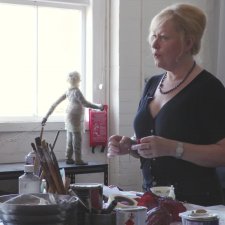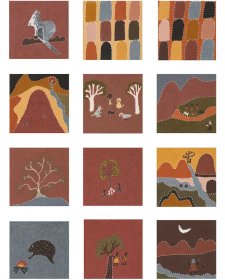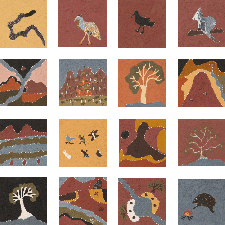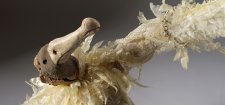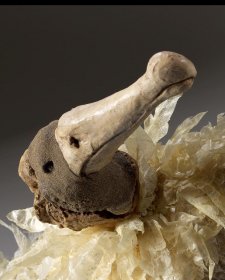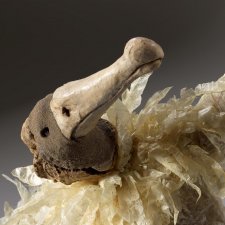Artist statement
The stories in these paintings – some were passed down to me and some are my memories from when I bin growing up. Some are Ngarranggarni (Dreaming) for us Gija people. They are in my dad's country near la Violet Valley and Mabel Downs, because that's where I grew up. They are about my life – but stories about women – from my mother, father and grandparents. I never seen my dad for mum or my dad for father (paternal grandparents), because they passed away before I bin born.
1 Dayiwool Ngarranggarni (Arygle dreaming), 2018. 2 Moonga Moonga (women’s corroboree), 2018. Both by Shirley Purdie.
The painting, Moonga Moonga (women’s corroboree), is before I bin born. Mum’s mob and my aunty (Dad’s sister) and all my family used to dance in Gilbun (Mabel Downs). You can see the men are singing with clapping sticks, while the women are dancing. Some old people made up this corroboree; this was when we used to dance for good feeling and happy times.
Gilbun Hill (Mabel Downs Hill) shows a story of my mum, aunty, grandmother, and a school teacher. That gardiya (white) woman – they bin take her up there (Gilbun Hill). And they reckon when she bin laying down under one of the trees, she bin get all them kangaroo ticks – he a big one, that kangaroo tick; he make you sore and you gotta pull him out. All this lot (my family) picked them out of her. She was red after that!
1 Gelbayen (Mabel Downs), 2018. 2 Ngalingalim berrem (Women’s one’s), 2018. Both by Shirley Purdie.
My grandmother used to tell my uncle that he couldn’t call these ones names – the Ngalingalim berrem (women’s ones). The painting shows them: the witchetty grub; what them gardiya call them the stormbird; the crimson and green parrot; the butterfly; the black cockatoo (that one sounds like a swearword in Gija, but gardiya won’t understand that); and one that’s like a mussel. That’s all the things that my grandmother told them young boys they couldn’t say. Now I am teaching my young boys that they can’t say these things either.
It’s good to learn from old people. They keep saying when you paint you can remember that country, just like to take a photo. Good to put it in painting, your country, so kids can know and understand. When the old people die, young people can read the stories from the paintings. They can learn from the paintings and maybe they want to start painting too.

